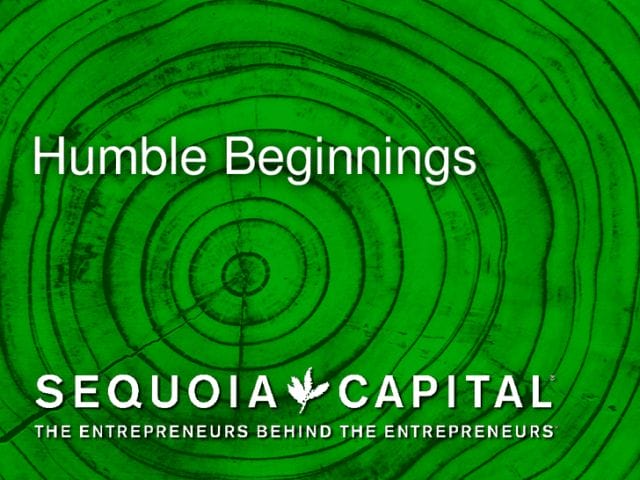
Yesterday, Y Combinator’s president, Sam Altman, announced that the seed investment firm had funded 716 companies that were currently valued collectively at around $30 billion. TechCrunch and Antonio Garcia-Martinez did some back-of-the-envelope math to value YC’s current stake in its portfolio at around $1BN.
The numbers are fairly straightforward: YC gets a 7% stake in each of its companies in exchange for startup capital and advice. Overtime, as companies raise more money, YC’s stake gets diluted by around 50% so that they own about 3.5% of the companies. A 3.5% stake in companies worth $30BN is about a billion dollars.
So, Y Combinator has created a staggering billion dollars in value for itself (and its limited partners) in less than a decade — a phenomenal achievement. But which investor has benefited the most financially from YC’s success at cultivating valuable startups? It’s very likely Sequoia Capital, Silicon Valley’s premier venture capital firm.
As Altman’s numbers reveal, the economics of the venture business are driven by the winners. Three companies in the YC portfolio are currently worth over billion dollars and they make up the overwhelming majority of the portfolio’s value. Airbnb ($10 BN valuation), Dropbox ($10BN), and Stripe ($2BN) are worth $22BN collectively, or 73% of the total portfolio.
Sequoia Capital is the Series A investor in all three of the companies. They were the first company to provide institutional funds and have board seats at Airbnb, Dropbox, and Stripe (as well as other YC company successes like Weebly, HumbleBundle, etc). Series A investors typically target owning 25% of the company and have “pro rata” rights to keep on investing in future rounds of fundraising so that they don’t get diluted.
So, how much money has Sequoia made from investing in YC companies? It’s a bit of a guess, but likely much more than YC has. If they were able to hold on to a 25% stake in these three startups, their holding would be worth $6BN, or 6 times more than what YC owns from its entire portfolio. Sure, by now, Sequoia might have less than a 25% stake in these companies, but they likely have a very sizable stake — certainly more than YC’s 3.5%.
Keep in mind that Sequoia invested in Dropbox and Airbnb in 2008 and 2009 respectively, after most investors had already passed on them and during a recession. As such, they likely were able to purchase a large percentage of the companies with their initial investments. And when Sequoia finds a winner, they try to own as much of the company as possible through follow-on investments (they famously provided all of the institutional capital to WhatsApp, a company that was bought by Facebook for $19BN).
Sequoia is the biggest winner from the founding of Y Combinator. But why? Sequoia can double down on the fastest-growing companies and YC can’t. The way YC is currently structured doesn’t allow them to make follow-on investments to get larger stakes in the runaway winners like Airbnb and Dropbox (though some of the YC partners do make personal follow-on investments). If YC started doing follow-on larger investments in the “winners,” it would send a pretty bad signal about the companies they didn’t follow on invest in, who would be considered “losers.” These companies would have a hard time raising money from other investors.
As YC evolves, it will be interesting to see if they ever revise this “no follow-on” policy and try to purchase a larger stake in the companies it thinks are the next billion dollar startups. Doing so might be in YC’s best financial interest, even if it has a negative signaling effect on part of the portfolio. If YC started doing series A investing in its most promising companies, they could even disintermediate traditional venture capital firms entirely from the startup process. Startups could go from inception to IPO, funded mostly by Y Combinator.
This post was written by Rohin Dhar. Follow him on Twitter. To get occasional notifications when we write blog posts, sign up for our email list.



